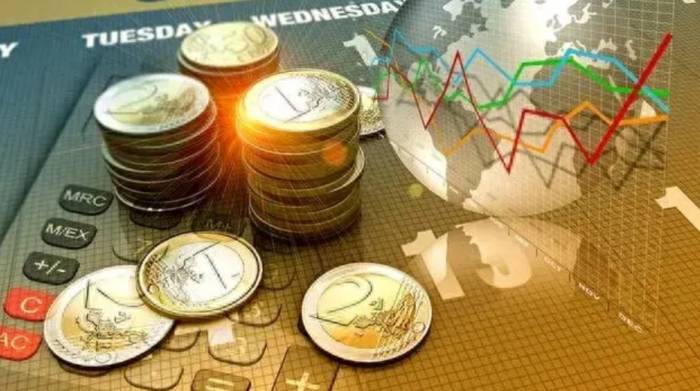14 Trillion Funds Switch Sides, RMB to Rise 20%?
In this rapidly changing economic era, the latest news has caused a stir in the entire market.
A staggering 14 trillion funds have "defected" at a critical moment, sparking heated discussions about the future trend of the Chinese yuan, with some even predicting a possible 20% appreciation.
At the same time, rising prices seem to have become an inevitable trend.
Today, let's discuss the reasons and impacts behind these changes.
The defection of this 14 trillion funds is no small matter.
Consider, this is a massive flow of capital, involving various industries and markets.
Its departure means that some sectors may face shocks, while others may welcome new opportunities.
The movement of this huge amount of funds will directly affect the Chinese yuan's exchange rate, inflation, and many other aspects.
In recent market analysis, experts have pointed out that the appreciation potential of the Chinese yuan is quite considerable.
Why is that?
First, let's look at the current economic environment.
Against the backdrop of the global economic recovery being sluggish, China's economy has shown a certain level of resilience and vitality.
Advertisement
This has led foreign capital to also look favorably on the Chinese market and start to increase investment efforts.
As funds continue to flow in, the demand for the Chinese yuan naturally increases, and the exchange rate strengthens accordingly.
In addition, the support of national policies is an indispensable important factor.
To promote economic growth, the government has introduced a series of prudent policies, enhancing market confidence.
In such a policy environment, the appreciation momentum of the Chinese yuan becomes more apparent.
Imagine, if the Chinese yuan really appreciates by 20%, what impact will this have on our lives?
Obviously, the appreciation of the Chinese yuan is good news for imported goods.
Prices are expected to stabilize as a result, and consumers can purchase high-quality goods at lower prices.
However, on the other hand, this is a significant challenge for export enterprises.
An increase in the exchange rate may cause their products to lose price competitiveness in the international market.
This also means that enterprises need to adjust their strategies to cope with the pressure brought by exchange rate fluctuations.
Speaking of rising prices, everyone should be familiar with this.
Whether it's daily shopping or travel, we can all feel the changes in prices.
So, what causes the trend of rising prices?
In fact, this is closely related to the domestic and international economic environment, supply and demand relationships, and many other factors.
First, the instability of the global supply chain has increased the production and transportation costs of many goods.
This directly leads to rising prices for goods in the market.
At the same time, as consumer demand picks up, supply and demand imbalances have also pushed up prices to some extent.
Everyone knows that if demand continues to exceed supply, rising prices become an inevitable result.
Of course, in addition to these external factors, internal policies will also affect prices.
For example, some adjustments in the government's monetary policy may lead to changes in liquidity, thereby affecting price levels.
In this situation, consumers' plans to buy cars and houses will also be affected.

Faced with future economic turbulence, many people start to think about how to deal with possible price increases.
Some smart consumers begin to stock up in advance, purchasing daily necessities to reduce future living costs.
For investors, finding the right investment opportunities has become increasingly important.
It is expected that in the next market adjustment, which industries may welcome investment opportunities has become a hot topic of discussion.
The defection of this 14 trillion funds has attracted widespread market attention to the appreciation of the Chinese yuan and the rise in prices.
The future economic situation is still full of uncertainty, but as long as we maintain keen observation and adopt corresponding strategies, we will surely be able to stand invincible in the turbulent market.
Faced with such changes, none of us can be careless.
Whether it is individual consumer behavior or investment decisions, we must fully consider market dynamics.
Especially when the Chinese yuan faces appreciation, we must promptly adjust our financial planning, seize potential new opportunities, and minimize risks as much as possible.
So, in the days to come, let us pay attention to the Chinese yuan exchange rate, price changes, and market dynamics, so that in this era full of opportunities and challenges, we can find our own path to development.
No matter how the future changes, as long as we are well-informed, we will surely be able to ride the waves in this economic tide and sail far!